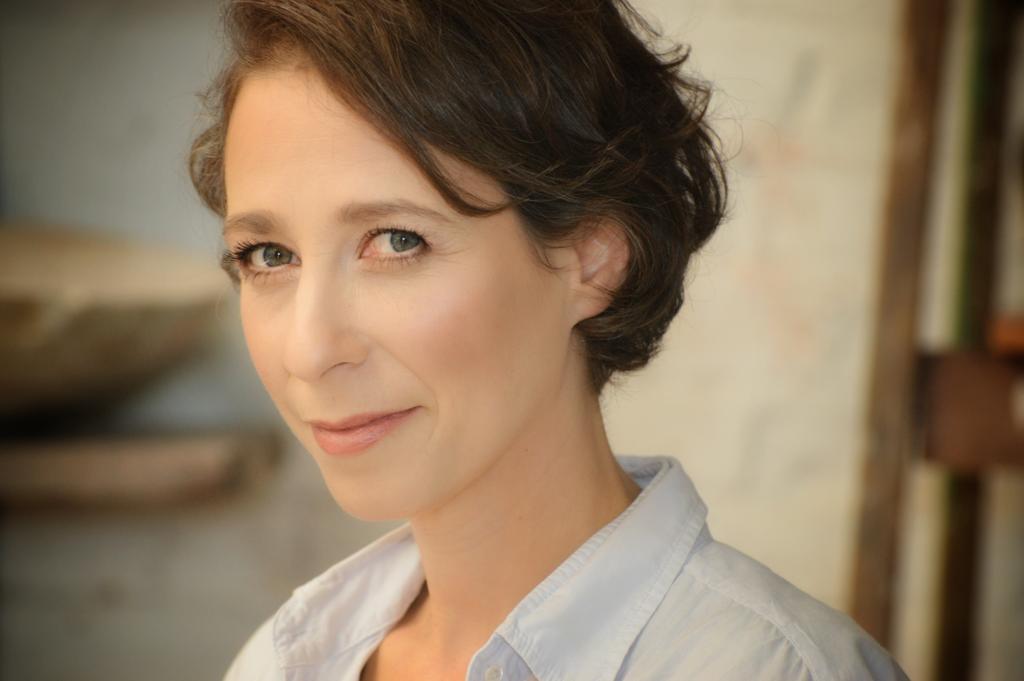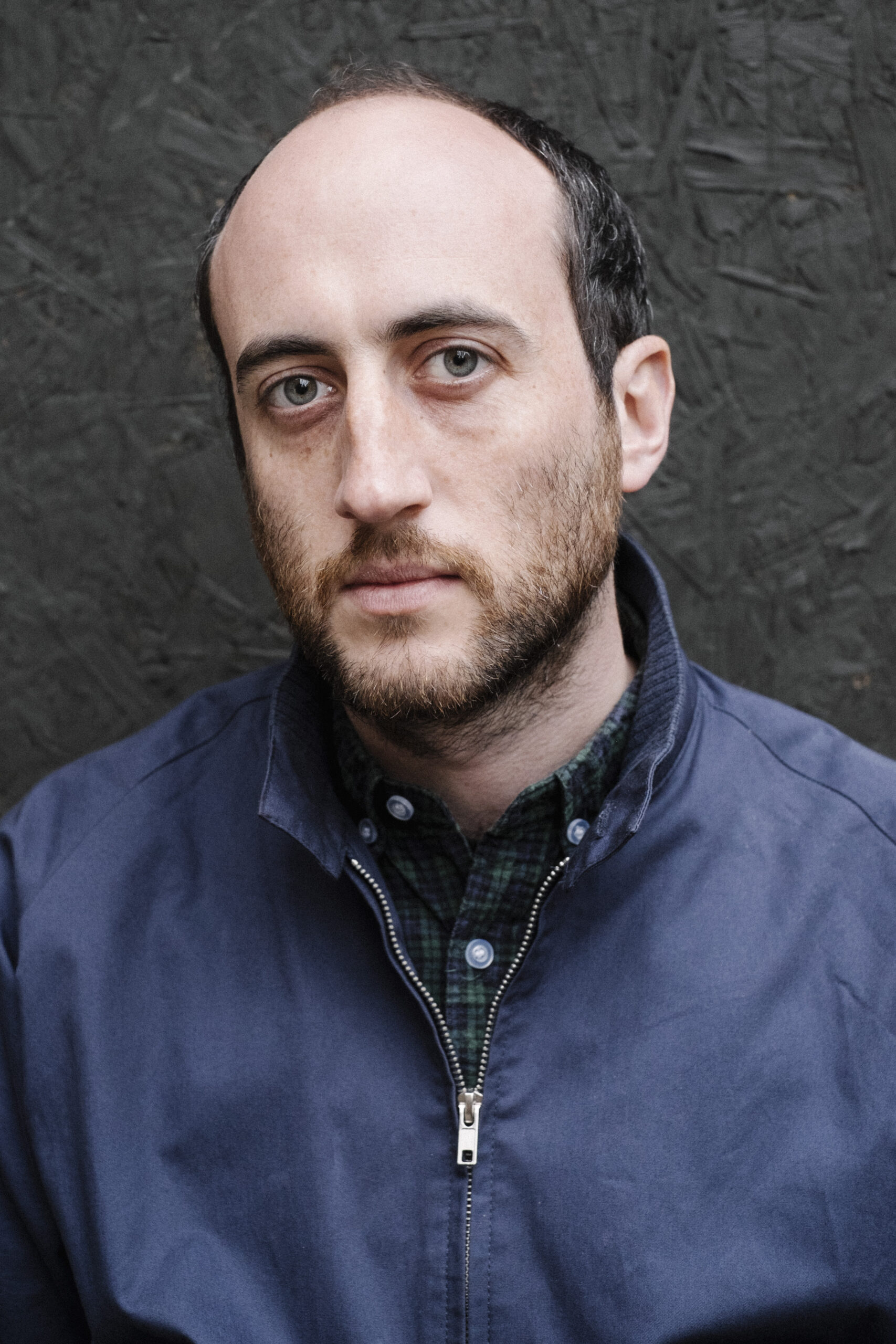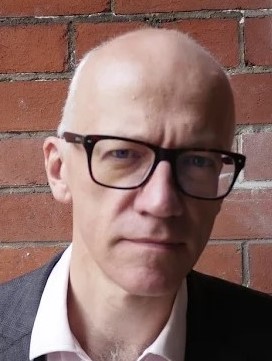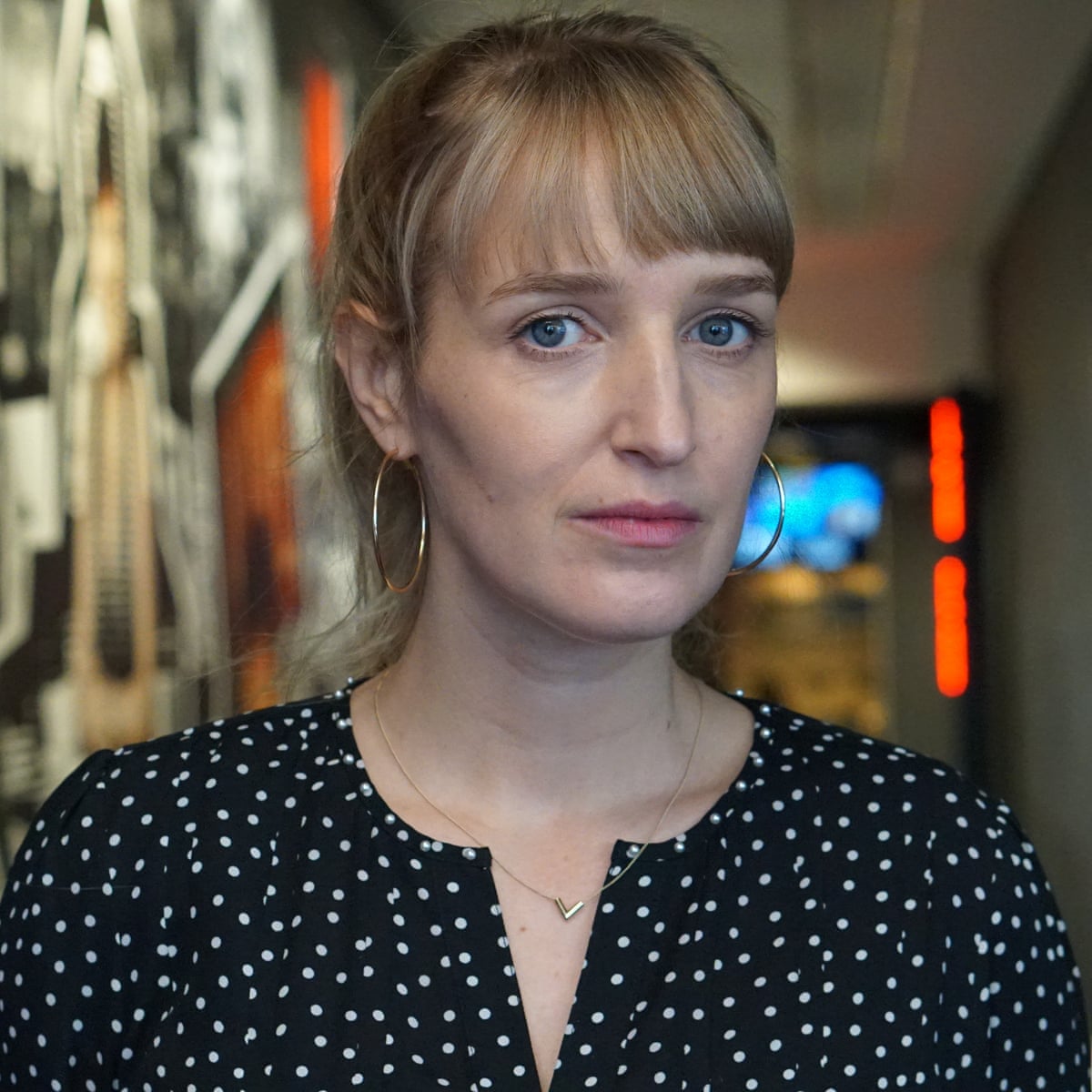Posted on May 17, 2022 by Eric Blair -

Ed Thomas is a Special Correspondent at BBC News. His reporting inside Wandsworth Prison and the inequality exposed by Covid won Royal Television Society awards in 2017 and 2022. His work often focuses on communities and people struggling to be heard in modern Britain and his extended reports feature on the BBC News at Ten and BBC online. Over the past 12 months Ed, with picture correspondent Phill Edwards and Senior Producer Lou Martin spent months in Burnley to witness the impact of the pandemic on the poorest, their reporting was an unflinching look at the lives of those in the most deprived areas of England.
His shortlisted pieces are:
Posted on May 17, 2022 by Eric Blair -

Poppy Sebag-Montefiore is a writer and journalist. She makes podcasts for Tortoise Media, and writes for Granta magazine and The Guardian Long Read.
Her shortlisted pieces are:
Posted on May 17, 2022 by Eric Blair -

Polina Ivanova is a foreign correspondent for the Financial Times, covering Russia and Ukraine. Born in St Petersburg and raised in the UK, she moved back to Russia to cover the country for Reuters, first as a commodities reporter and then a Special Correspondent on the investigative team.
Her shortlisted pieces are:
Posted on May 17, 2022 by Eric Blair -

Billy Perrigo is a journalist at TIME magazine who writes mostly about social media and artificial intelligence. Much of his reporting focuses on how tech companies are restructuring power in the world, with a focus on the fallout for marginalized communities, workers, and people living in postcolonial states.
His shortlisted pieces are:
Posted on May 17, 2022 by Eric Blair -

Daniel Trilling is a freelance journalist and author who writes regularly for the Guardian, London Review of Books and others about migration, nationalism and human rights. His most recent book, Lights in the Distance: Exile and Refuge at the Borders of Europe, was shortlisted for the 2019 Bread and Roses Award for Radical Publishing.
His shortlisted entries are:
Posted on May 17, 2022 by Eric Blair -

Neil Munshi is an editor at Bloomberg in West Africa. He spent the previous decade at the FT, as a correspondent in Lagos, New York, Chicago and Bombay. He was born in Milwaukee and lives in Lagos with his wife and two children.
His shortlisted entries are:
Posted on May 17, 2022 by Eric Blair -

An award winning investigative journalist focusing on conflict, terrorism, refugees and human trafficking. Currently contributing editor to New Lines Magazine and specialist producer for ITV News. His books include To The Mountains: My Life in Jihad, from Algeria to Afghanistan, The Travels of Ibn Fudayl and The Darkness Inside (forthcoming).
His shortlisted pieces are:
Posted on May 17, 2022 by Eric Blair -

George Monbiot is an author, Guardian columnist and environmental activist. His best-selling books include Feral: Rewilding the land, sea and human life, Heat: how to stop the planet burning; and Out of the Wreckage: a new politics for an age of crisis. George cowrote the concept album Breaking the Spell of Loneliness with musician Ewan McLennan. His viral videos include How Wolves Change Rivers (viewed on YouTube over 40m times) and Nature Now, co-presented with Greta Thunberg (over 60m views). George’s latest book, Regenesis: Feeding the World without Devouring the Planet, will be published in May 2022.
His shortlisted pieces are:
Posted on April 7, 2021 by The Orwell Prize -

Tom Kelly is the Daily Mail’s Investigations Editor, Susie Coen is the Assistant Investigations Editor and Sophie Borland is the Health Editor.
“In a string of investigations, we revealed the devastating scale of COVID-19 in care homes – and the government failings that had enabled it to thrive. We exposed how the dire shortages of PPE meant carers were too terrified to work, how major chains ravaged by the disease had been denied tests – despite government claims these had started – and how care homes were being forced to play ‘Russian roulette’ with helpless residents’ lives after the Government ordered them to accept hospital patients with suspected coronavirus. Early in the outbreak we discovered that industry experts calculated the ‘hidden epidemic’ of the virus in care homes had already claimed 4,000 lives, even as government figures said the figure was just 217. Piers Morgan used our splash to confront Care Minister Helen Whately live on TV about the scandal. Our exposes had an immediate impact. Matt Hancock pledged all care home residents and patients released into them from hospitals would be tested if they showed symptoms and launched a new supply network to help get PPE to care home staff. We later revealed how care homes were were still waiting 15 days for the test, putting residents at new risk.”
Posted on April 7, 2021 by The Orwell Prize -

Robert Wright has worked for the Financial Times since 1997 in many roles, including Budapest correspondent, transport correspondent and US industry correspondent. He is currently social affairs correspondent. He focuses on immigration and policing, seeking to show how policy is working and giving voice to those whom the system fails.
Wright writes: “I first heard of the work of Kalayaan and other groups helping escaped domestic workers in 2019 and spent months squeezing research on the subject around my day-to-day reporting. I was profoundly disturbed to hear the stories of women who’d slipped away from abusive employers during visits to the UK and felt appalled about their plight. I thought it important to highlight the huge barriers to justice that faced this group, who as immigrants with no roots in the UK are as vulnerable as any fleeing migrants could possibly be. From the moment I met some of the women in Kensington Gardens in July 2019, their courage, resourcefulness and tenacity profoundly moved me. However, the issue also had wider significance. I recognised that, if the government preferred to avoid making minor adjustments to the visa arrangements of this small, vulnerable group, there were real questions about its commitment to tackling modern slavery. I consequently went in some detail in the piece into why the Overseas Worker’s Visa is so fundamentally flawed.”
Posted on April 7, 2021 by The Orwell Prize -

In March 2020, The New York Times began the first comprehensive investigation into the UK government’s flawed response to the surge in domestic abuse under lockdown, interviewing more than 50 government and police officials, experts, support workers and abuse survivors. The investigation revealed how ministers never prioritised domestic abuse in lockdown planning and failed to deliver promised support to vulnerable people. Through a powerful interactive visualisation, the feature memorialised all 26 women and girls killed by male partners or relatives during the first few months of lockdown and ensured they were remembered as more than a statistic. The team compiled the list of suspected domestic homicides using data from the Counting Dead Women Project and painstakingly verified each case through police and court records, press reports and interviews because the authorities do not centrally collate detailed information on domestic homicides.
Jane Bradley is the UK investigative correspondent for The New York Times. She is based in London where she focuses on uncovering abuses of power, social injustices and financial crime and corruption. Amanda Taub is a London-based news columnist and reporter for The New York Times, focusing on how gender, race and identity shape global events.
Posted on April 7, 2021 by The Orwell Prize -

Annabel Deas is an investigative journalist at BBC Radio 5 Live based in Salford. In 2018 she was awarded funding by the Winston Churchill Memorial Trust to travel to the US to research best practice for telling the stories of marginalised people.
Deas writes: “Hope High is a 7 part podcast documenting the year I spent with a community in Huddersfield where a number of children were being exploited by county lines drug dealers. I made the podcast after being frustrated by news reports describing children involved in drug or knife crime as being “in a gang”. Children are not ‘gangsters’ and I wanted to discover the real reason why some children were selling drugs and carrying weapons. I worked closely with a secondary school where I got to know a number of pupils who were being exploited by county lines gangs. I spent a long time in the community so I could witness events as they unfolded in real time and attempt to understand where the gaps were which led to a small number of children being excluded from school, shot at, selling drugs or in prison. As I was working with vulnerable young people, a podcast was the ideal way of providing anonymity as I could change names and voices. After its release thousands of people contacted the BBC and myself to express thanks for explaining why these issues take place.” (The project is now being taught at A Level and on degree courses and is used as a resource by police and social services across the UK.)
Posted on April 7, 2021 by The Orwell Prize -

Richard Watson is a correspondent for BBC Newsnight, specialising in investigative work. At the start of his career, Richard covered the first Gulf war. After this he joined the BBC, working for The Money Programme, File on 4, Newsnight and Panorama. He has investigated organised crime, terrorism and miscarriages of justice.
Watson writes: “In December 2019 three black women were brutally attacked in London by a gang of white men. One of the women, a 37-year old from London, was kicked unconscious. The Metropolitan Police categorised the incident as a serious hate crime but failed to search for witnesses or recover CCTV and closed the case without even taking victim statements. She then approached me saying the police had racially profiled them, assuming it was a drugs deal gone wrong. I was reminded of the murder of black teenager Stephen Lawrence in 1993 and a police investigation hampered by institutional racism. I wondered if similar themes would emerge: she was determined to hold the police to account, and a Newsnight film would give her a powerful voice. I began a detailed investigation. Nearly 30 years on from Stephen Lawrence’s murder, the final film shone a harsh light on police attitudes and exposed multiple failures. The Met referred itself to the Independent Office for Police Conduct, apologised to the women and reopened the case. After seeing the Newsnight report, a witness came forward who had filmed the attack on his mobile phone. One of the alleged attackers was arrested and has been charged with racially aggravated assault.”
Posted on April 7, 2021 by The Orwell Prize -

Kale Writes: “Lost to the Virus was a series of seven long-form articles that were published between August and September 2020. Each piece was a profile of an individual who died in the first wave of the Covid-19 pandemic in the UK. My intention was to humanise the UK’s terrible death toll, to which the public was becoming increasingly desensitised, by spotlighting the people behind the statistics. I wanted to profile ordinary people with the depth, care, and compassion they deserved – to show that the people who “life faithfully a hidden life and rest in unvisited tombs”, to quote George Eliot, are as deserving of our attention as the most-eulogised of world leaders. I also wanted to show the governmental and institutional failures that may have contributed to their deaths, such as the failure to cancel mass events, the PPE crisis in our hospitals, how decades of privatisation contributed to the carnage in care homes, the failings of NHS 111, why the mortality rate amongst transport workers was so high, and how institutional racism contributed to the death of Belly Mujinga.”
Sirin Kale is a features writer based in London, writing principally for the Guardian newspaper. She was previously an editor at the youth media publication VICE, where she won awards for her investigations into rape, stalking, and domestic violence. During the pandemic she has been profiling the lives lost to Covid-19 for the Guardian’s long-form series Lost to the Virus. She has also written for a range of other publications and is a frequent contributor to national broadcast and radio.
Posted on April 7, 2021 by The Orwell Prize -

Simon Akam (@simonakam) is a contributing writer for 1843 magazine, sister magazine to The Economist. Alongside his work for The Economist, he writes for publications including GQ, Outside and Bloomberg Businessweek. He is the author of The Changing of the Guard: the British Army since 9/11 and co-hosts a writing podcast Always Take Notes.
In his features for 1843 Magazine, Simon Akam has tackled complex stories about Britain’s handling of the pandemic, ranging from the NHS’s battle against the virus, to contact-tracers in Yorkshire. The inside story of Britain’s fight against covid-19 is the result of three months following doctors, nurses and paramedics in London as they fought the most devastating pandemic for a century. This is the untold story of what it felt like to be on the front-line: the chaos, the fear, even the exhilaration of health-care workers as they struggled to manage this most unpredictable disease. In ‘On the hunt with Yorkshire’s virus-detectives’, Simon travelled to northern England to embed with a team of local coronavirus contact-tracers. As the UK’s national system buckled under the resurgence of coronavirus, Simon investigated the system’s shortcomings, and explored whether local track-and-trace schemes offered a fix.
Posted on April 7, 2021 by The Orwell Prize -

John Harris and John Domokos are the co-creators of The Guardian video series Anywhere But Westminster, which has been running for over ten years, chronicling and foreshadowing many of the tumultuous political events of the decade. Their aim has always been to turn political coverage on its head, and root their journalism far beyond centres of power, in the experiences of people and places too often ignored.
Posted on April 7, 2021 by The Orwell Prize -

Sarah O’Connor is a columnist, reporter and associate editor at the Financial Times. She writes a weekly column focused on the world of work, as well as longer features and investigations.
Posted on April 7, 2021 by The Orwell Prize -

Chloe Hadjimatheou is an investigative journalist at the BBC where, among other things, she has uncovered disabled kids kept in cages, tracked deaths caused by jihadist violence across the globe and told the story of a group of young Syrian boys who took on the Islamic State.

















